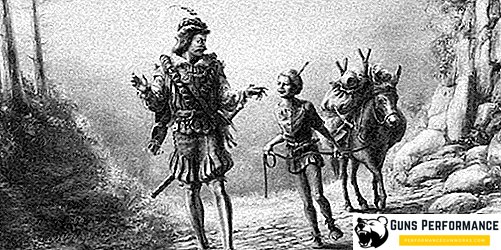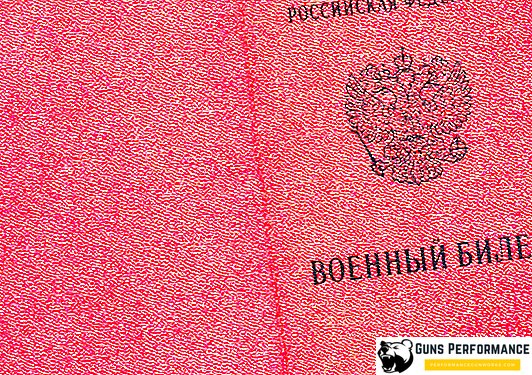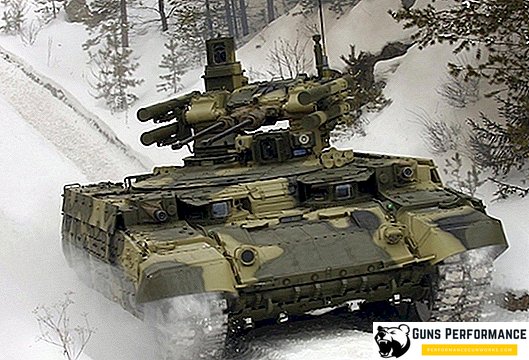
There are no people who would not hear about the squires. Most believe that the squires of the knights were some kind of serf rumor who had to serve their masters. In fact, the squire is a very honorary title, after several years of service in this field, young people could become knights.
How was it possible to become a squire
A squire servant in England, France or Germany was far from being a simple man. All applicants for this position were to be of noble origin and, as a rule, serve for about 5-7 years as a page for a noble knight or king.
The future squire in England became a page in 7-10 years. The earlier he managed to do this, the more skillful a knight could make of him afterwards. The boys had to carry out all the orders that the castle master assigned them.

These were:
- Cleaning;
- Serving at the table;
- Accompanying the knight and his family members.
Since most of the pages were relatives or children of friends of the castle owner, they were taught the following tricks:
- Court manners;
- Swimming;
- Fight;
- The basics of gun ownership.
After the young page perfectly began to fulfill his duties, he could expect to receive a higher status - a squire.
Each squire knight in England could hold one of the following positions:
- To be a valet;
- Sly;
- Stable horse;
- Kravchim and hold other similar positions that the knights trusted them.
The personal squire of the knight in England was the most significant in the whole system of posts of squires.
The main occupations of the medieval squires

From the age of 14, the former pages became full squires. They still had to fulfill all the instructions entrusted to the knight, but from that time they began to be taught how to use various weapons.
One of the main privileges that were available to the squires was the permission to participate in their lord's conversations with other knights. The squires learned secular talk, and if necessary could express their opinions.
The young squires were entrusted with taking care of the knight's warhorses. Grooming for horses, squires learned to ride and various tricks necessary for the rider. All the worries associated with weapons and armor also fell on the shoulders of young squires.
When the knight was going on a campaign or to visit, the squires hurried to help:
- Button his armor;
- Submit a weapon;
- Bring a war horse and support the stirrup.
Taking care of the state of weapons and armor, the squires learned to walk in armor and sharpen and repair weapons. If the knight noticed any problems in military ammunition, he could severely punish his squire, because the life of the knight depended on it.
The main thing of the squire was to accompany the knight in military campaigns, where he was to help him in battles, giving weapons and watching the opponent. Sometimes it happened that in a knightly duel the squire could help his knight to finish off the enemy (even though it was considered dishonest). In this case, the squire from the other side engaged in a deadly battle with the opponent's squire.
Military squires

It should not be considered that the main duty of the squire was the supply of arms and care for knightly equipment. During the service of a knight who went on a military campaign, the young man was awaited serious tests. In battles, they were supposed to cover their master with shields, repel the blows of the enemy and provide medical assistance to the knight. In the event of a knight defeat, the squire's task was to quickly evacuate the knight to a safe place.
Although young people tried to take care of in battles, the mortality rate among the squires significantly exceeded the mortality of the titled knights. In order to minimize losses, the squires spent the whole day learning the martial arts.
Test squire
The main test of the squire took place at the knightly tournament. Young people fought to prove they deserve the title of knights. In order not to hurt young people much, their weapons for tournaments were easy and brittle. Squire tournaments served as a kind of "warming up" before the tournaments of real knights.
Young warriors who won the squires' tournaments could be invited to participate in knightly tournaments, which indicated that their cherished dream of becoming a knight was very close.

What titles were awarded to squires in various European countries
In England, the title of Esquire or Squire (from the word shieldman) was considered to be a very honorable title. In the Middle Ages, this title was awarded to squires, which consisted of a knight. Later this title was worn by officials who executed orders of the government.
Ministerial title was worn by representatives of small knighthood in Germany. As a rule, these knights did not have great wealth and greatly valued their service with a large feudal lord. Become a ministerial could even be a representative of the population of disgraceful, starting military service as a lightly armed rider in the feudal squad. Serving a knight (as a squire), he could get a plot of land and go into heavy cavalry.
Squires in Russia
In Russia, there was a special stratum of warriors, similar to European squires. They were called rynda, and they served as bodyguards of princes and kings. They stood on both sides of the sovereign's throne with hatchets on their shoulders. Only young men of noble origin could get into the markets.
The squires were a highly respected stratum of medieval society. Even the kings did not consider it shameful to assign this title to their sons.












